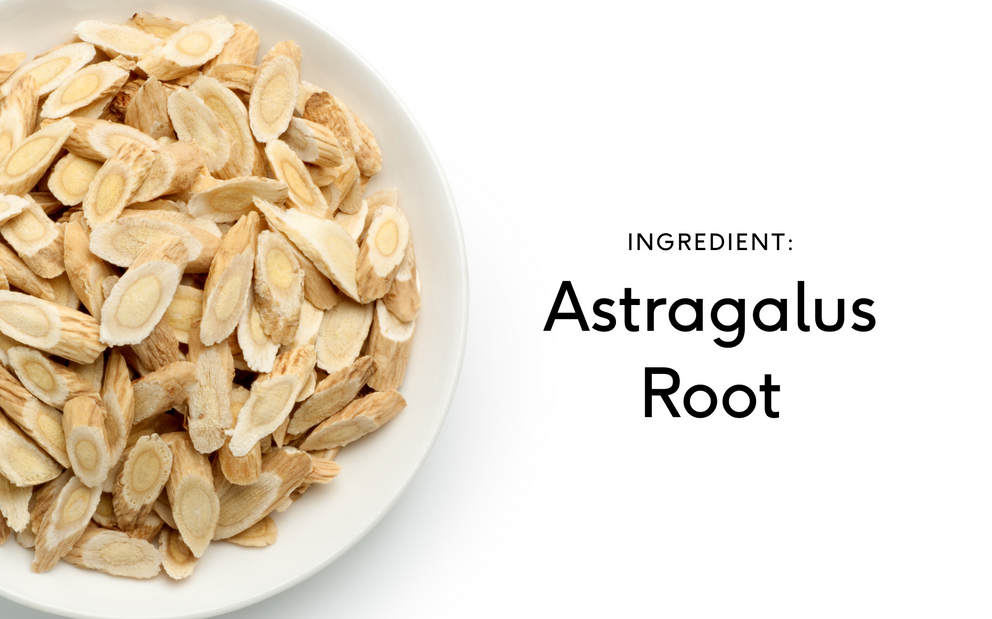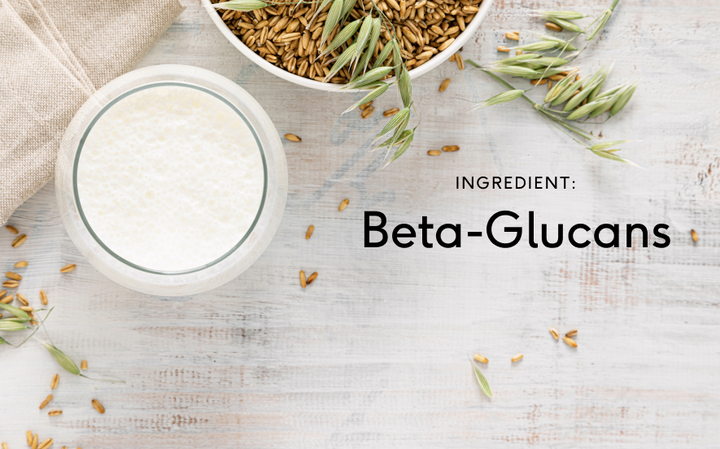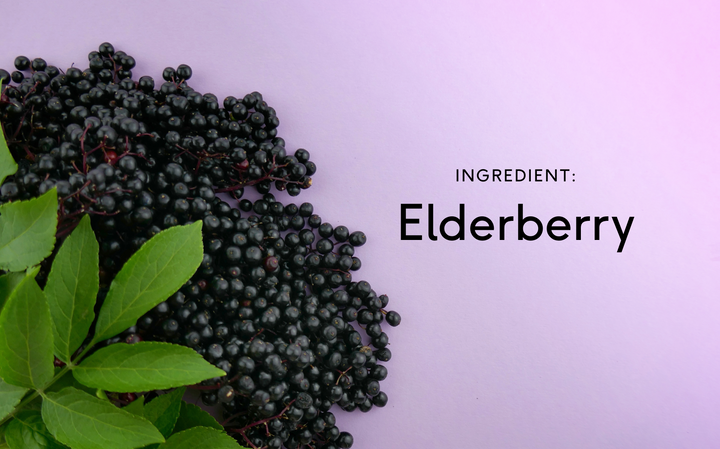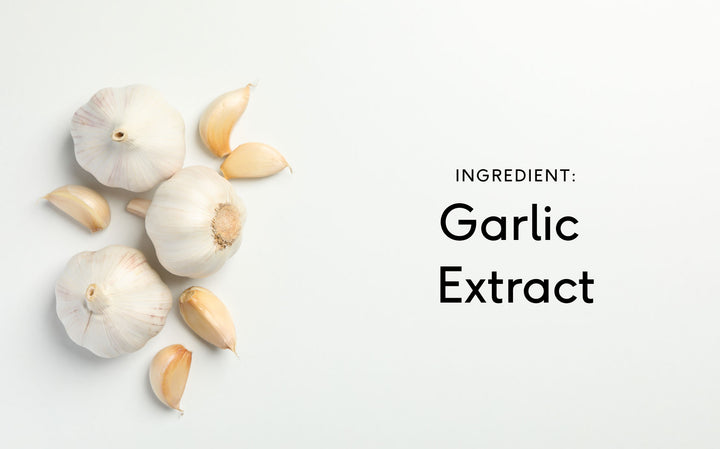Learn About Astragalus Root Extract in 5 Minutes
Table of contents

What is astragalus root extract?
Astragalus propinquus, also known as Mongolian milkvetch, is an essential component of traditional Chinese medicine, and this substance has been used for hundreds of years to prolong life, reduce the symptoms of allergies, and prevent heart disease. The beneficial components of this perennial plant are mainly concentrated in its roots, and recently, Western scientists have started investigating astragalus root extract for its potential immune-boosting, anti-aging, and cardiovascular benefits.
Is astragalus water-soluble or fat-soluble?
Astragalus root contains dozens of different compounds, and while some are water-soluble, the majority of the substances in astragalus are fat-soluble.
Where can astragalus root extract be found naturally? Common sources of astragalus:
The only source of the unique medley of compounds present in astragalus is astragalus root.
What is the recommended daily value for astragalus?
There is no official nutrient reference value (NRV) for astragalus since this substance is not recognised as an essential nutrient. In clinical studies, however, doses between 2-30g are commonly used.
Can you absorb enough astragalus from food?
Astragalus root, while edible, is not particularly delicious, so this substance is not commonly eaten.
Why is astragalus necessary for your body?
Astragalus contains cycloastragenol, a substance that may activate telomerase, which prevents the destruction of your telomeres. Since telomeres are markers on your DNA that cause you to age when they break down, astragalus may support healthy ageing. There is also plenty of evidence supporting the theory that astragalus may support your immunity, prevent cardiovascular disease, and exert a wide range of other health benefits. This multi-talented, natural substance appears to improve your health whether you’re troubled by infectious disease or not.
Functions of astragalus
- Potential immune benefits: Research indicates that astragalus may increase your white blood cell count, and this substance may help with infections by directly targeting viruses and harmful bacteria. Astragalus may also help with hepatitis, a form of liver infection.
- Potential anti-aging benefits: Studies show that the saponins in astragalus may extend the length of your shortest telomeres, preventing DNA destruction and subsequent cell death.
- Potential cardiovascular benefits: Clinical research indicates that astragalus may improve overall cardiovascular function by widening your blood vessels. Limited research also indicates that this substance may be useful for preventing congestive heart failure.
- Potential diabetes benefits: Clinical studies show that astragalus may help with the symptoms of type 2 diabetes by reducing blood sugar levels.
- Potential kidney benefits: Research shows that astragalus may prevent proteinuria, a common indicator of poor kidney function. This substance may also prevent infections associated with kidney disease.
- Potential fatigue benefits: In combination with other herbs used in traditional Chinese medicine, astragalus may reduce the symptoms of chronic fatigue.
Astragalus is thought to protect and support the immune system, with potential antibacterial properties, which is why we’ve included 5mg in Feel Immunity.
When should you take astragalus root extract?
Astragalus can be taken whenever concerns over infectious disease are on the rise. In addition to potentially mitigating the symptoms of both viral and bacterial infections, astragalus may also prevent infectious disease from gaining a foothold in your body. Given the medley of other potential benefits that astragalus might exert, you may want to take this substance regularly regardless of your current health status.
How long do you need to take astragalus to start experiencing its benefits?
Since most of the beneficial compounds in astragalus are fat-soluble and have a cumulative effect, you may need to take this substance for more than a week to experience its unique benefits.
Consistency is key and our research recommends that you take your Feel supplements for at least 3 months to allow your body to adjust and provide you with the desired benefits.
How long does it take for your body to digest/absorb astragalus?
Your body will absorb the water-soluble compounds in astragalus within around 24 hours, but it may take multiple days to process this substance’s fat-soluble compounds.
How long does astragalus stay in your body after you take it?
The fat-soluble compounds in astragalus will stay in your body for up to four weeks while this root’s water-soluble compounds will pass through your body within 2-3 days.
Is astragalus root extract an antioxidant?
Research indicates that the beneficial substances in astragalus may exert direct antioxidant properties.
Can you overdose on astragalus? What are the effects?
There are no reported cases of astragalus overdose. This substance may sometimes cause mild side effects like skin rashes and runny nose.
Does astragalus dissolve, flush out, or build up in the body?
The fat-soluble compounds in astragalus tend to accumulate in fatty tissues like your liver, but the water-soluble compounds in this root are excreted out of your body quite rapidly.
Can you take astragalus during a diet?
Astragalus is a vegan, gluten-free, cruelty-free and an all-natural substance, so it does not interfere with any dietary restrictions. This substance does not appear to significantly affect weight gain or weight loss.
Are there synthetic forms of astragalus?
While certain efforts have been made to combine components of astragalus with synthetic compounds, none of the unique compounds in of this root have been fully synthesised.
Absorption rate of synthetic astragalus
No information is available on the theoretical absorption rates of synthetic astragalus.
Why might natural forms of astragalus be better?
Natural forms of astragalus are the only forms of this substance currently available.
How to take astragalus
Astragalus root is generally dried, powdered, and then taken in the form of an oral supplement.
Astragalus root extract trends in medicine
In 2020, international researchers determined that astragalus improved immunity in fish in a laboratory setting, while also exerting antioxidant effects. Also this year, Chinese scientists explored the potential benefits of astragalus for ulcerative colitis, which often causes associated lung injury. The researchers determined that astragalus may be an effective tool for preventing both conditions.
Sources
1. Immune System Effects of Echinacea, Ginseng, and Astragalus: A Review
2. Clinical and Experimental Effectiveness of Astragali Compound in the Treatment of Chronic Viral Hepatitis B
3. Anti-Aging Implications of Astragalus Membranaceus (Huangqi): A Well-Known Chinese Tonic
4. [Effects of Astragalus on Cardiac Function and Serum Tumor Necrosis Factor-Alpha Level in Patients With Chronic Heart Failure]
5. The Effect of Astragalus as an Adjuvant Treatment in Type 2 Diabetes Mellitus: A (Preliminary) Meta-Analysis
6. Astragalus (A Traditional Chinese Medicine) for Treating Chronic Kidney Disease
7. Effect of Lixu Jieyu Recipe in Treating 75 Patients With Chronic Fatigue Syndrome
8. Astragalus membranaceus nanoparticles markedly improve immune and anti-oxidative responses; and protection against Aeromonas veronii in Nile tilapia Oreochromis niloticus
9. Synergistic protection of astragalus polysaccharides and matrine against ulcerative colitis and associated lung injury in rats




















































 Back
Back





